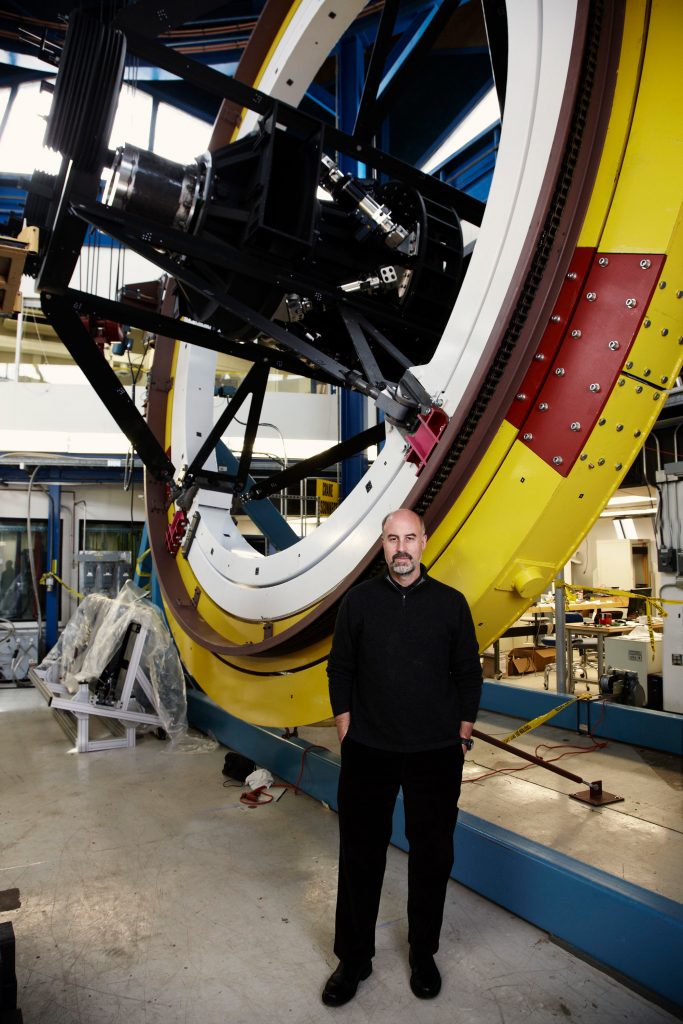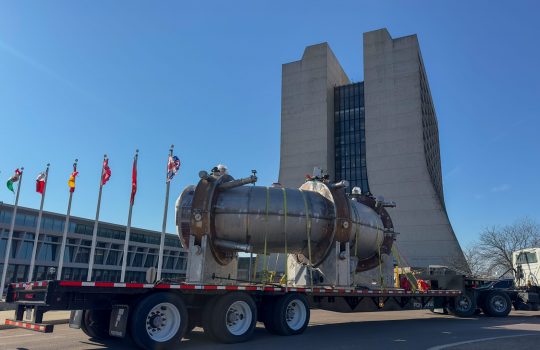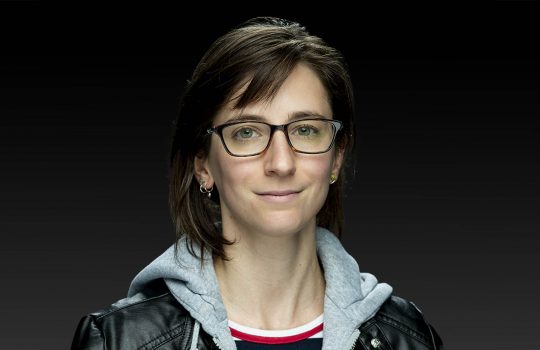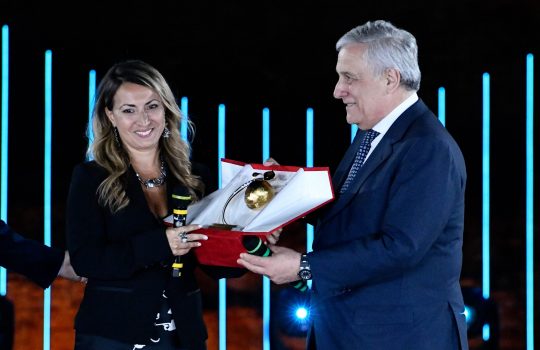The Department of Energy has awarded Fermilab and University of Chicago scientist Josh Frieman $1 million over three years as part of the inaugural Office of Science Distinguished Scientist Fellowship program.
Office of Science distinguished scientist fellows were chosen from nominations submitted by nine U.S. national laboratories. Frieman is one of only five scientists selected, chosen for his scientific leadership, engagement with the academic research community, scientific excellence and significant scientific achievement.
The Distinguished Scientist Fellowship was established to develop, sustain and promote excellence in Office of Science research through collaborations between institutions of higher education and national laboratories.
Frieman says he will use the funding to support his cosmic research program and to foster tighter connections in cosmic frontier research between Fermilab and the University of Chicago.
While a significant number of University of Chicago graduate students and postdoctoral researchers have conducted research at Fermilab in a variety of areas of high-energy physics, very few currently carry out cosmology or theoretical astrophysics work at the lab.
Frieman aims to change that by building more active collaboration between Fermilab and the University of Chicago in research with cosmic surveys.
“There are many very talented students at the university and many very talented scientists at Fermilab,” Frieman said. “I’ve mentored students and postdocs at the University of Chicago, but few of them have spent time at Fermilab. And there are postdocs in the astrophysics groups at Fermilab who spend a small fraction of their time at the university. I’m looking to bridge that gap, to help make the whole greater than the sum of its parts.”
Frieman’s current research centers on the Fermilab-hosted Dark Energy Survey — a project he led from 2010 to 2018 — and will transition in coming years to the Large Synoptic Survey Telescope, whose construction is managed by SLAC National Accelerator Laboratory.
“With its full data set accumulated, the Dark Energy Survey is at a very exciting phase of its science analysis, and both the university and Fermilab will play significant roles in LSST. I’d like to get more students and postdocs engaged in both projects and to stimulate synergies between the lab and the university in the process,” he said. “Collaboration drives science forward, and this award recognizes that the more closely the labs and universities work together, the further we can take our research. It’s an honor to be among the first recipients of this fellowship.”
With a long list of leadership roles and academic distinctions to his credit, Frieman has the experience needed to bring these two research groups together. Currently the president of the Aspen Center for Physics, Frieman is a fellow of the American Physical Society, of the American Association for the Advancement of Science, and of the American Academy of Arts and Sciences. He is also chair of the American Physical Society Division of Astrophysics. He previously served on the Particle Physics Project Prioritization Panel of the High Energy Physics Advisory Panel, on the Astro 2010 Decadal Survey Committee, and on the Astronomy and Astrophysics Advisory Committee.
Frieman is head of the Fermilab Particle Physics Division and is a professor of astronomy and astrophysics and member of the Kavli Institute for Cosmological Physics at the University of Chicago.




